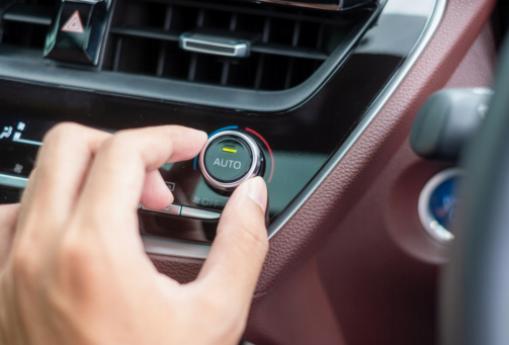Is your car's air conditioning not performing at its best? It may be a sign that the refrigerant needs to be recharged. Loss of cooling efficiency, strange noises, and visual clues are all indicators of potential issues with the refrigerant. Understanding the warning signs and how the A/C compressor affects cooling performance can help you identify when it's time for a recharge. In this article, we will explore the common signs that indicate your car's air conditioning refrigerant may need to be recharged, as well as the importance of seeking professional diagnosis for accurate troubleshooting.

Identifying Loss of Cooling Efficiency and Temperature Changes
One of the most common signs that your car's air conditioning refrigerant needs to be recharged is a noticeable decrease in cooling efficiency. If you find that the airflow from your vents is not as cold as it used to be, or if it takes longer for the interior of your car to reach a comfortable temperature, it may be a sign that the refrigerant levels are low. Additionally, if you notice that the temperature inside your car fluctuates more than usual, it could be a sign that the refrigerant is not able to maintain a consistent cooling effect. Keep an eye out for these signs, as they could indicate the need for a refrigerant recharge.
Warning Signs from Strange Noises and Odors
When it comes to maintaining your car's air conditioning system, paying attention to any strange noises or odors is crucial. These warning signs can indicate potential issues with the refrigerant or other components of the A/C system. It's important to address these signs promptly to avoid any further damage or more extensive repairs. Strange noises such as grinding, squealing, or banging could suggest a problem with the A/C compressor or other mechanical components. Likewise, musty or foul odors coming from the vents may be a sign of mold or bacteria growth, which can affect the overall performance of the A/C system. Being mindful of these warning signs and addressing them promptly can help ensure the efficiency and longevity of your car's air conditioning system.
Visual Clues and Refrigerant Leaks Indicators
Visual clues can also signal to a potential refrigerant leak in your car's air conditioning system. One common indicator is the presence of oil or dye around the A/C components, which can point to a leak. Additionally, any noticeable frost or ice buildup on the A/C lines or components can also suggest a possible refrigerant leak. If you observe any of these visual clues, it is crucial to have your A/C system inspected by a professional to pinpoint and address the source of the leak before recharging the refrigerant.
The Role of the A/C Compressor in Cooling Performance
The A/C compressor is a key component in the cooling performance of your car's air conditioning system. It is responsible for pressurizing and circulating the refrigerant, which is essential for the cooling process. When the A/C compressor is functioning properly, it allows for the proper compression and circulation of the refrigerant, which in turn helps to maintain the temperature inside your car at a comfortable level. However, if the A/C compressor is not working as it should, it can lead to a decrease in cooling performance and overall efficiency of the air conditioning system. This can result in reduced cooling capacity and may also cause the system to blow warm air. It is important to address any issues with the A/C compressor promptly to ensure optimal cooling performance.
How Humidity Inside the Car and Persistent Problems Signify Issues
Humidity inside the car and persistent problems can be significant indicators of air conditioning refrigerant issues. When the refrigerant levels are low, the A/C system may struggle to remove excess humidity from the air inside the car. This can lead to a damp and musty smell, especially when the A/C is running.
Additionally, persistent problems with the A/C system, such as inconsistent cooling performance or the A/C not blowing cold air at all, may be a sign of low refrigerant levels. If the refrigerant is low, the system will not be able to cool the air effectively, leading to discomfort for the driver and passengers.
It is important to address these issues promptly, as continued use of the A/C system with low refrigerant levels can put additional strain on the A/C compressor and other components. This can lead to further damage and potentially more costly repairs in the future.
If you notice humidity inside the car or persistent problems with your A/C system, it is important to have a professional diagnose the issue. They can accurately troubleshoot the system and determine if the refrigerant levels are low, allowing them to recharge the system and restore proper cooling performance.
Importance of Professional Diagnosis for Accurate Troubleshooting
It is important to seek professional diagnosis for accurate troubleshooting when it comes to your car's air conditioning refrigerant. Professional technicians have the knowledge and expertise to properly diagnose and address any issues with the A/C system. Without a professional diagnosis, you may end up wasting time and money on ineffective repairs. A professional can accurately identify the root cause of the problem and ensure that it is fixed correctly the first time, saving you both time and frustration. Additionally, professional technicians have access to specialized tools and equipment that are necessary for diagnosing and repairing A/C refrigerant issues. Overall, seeking professional diagnosis for A/C refrigerant problems is crucial for maintaining the performance and longevity of your car's air conditioning system.
